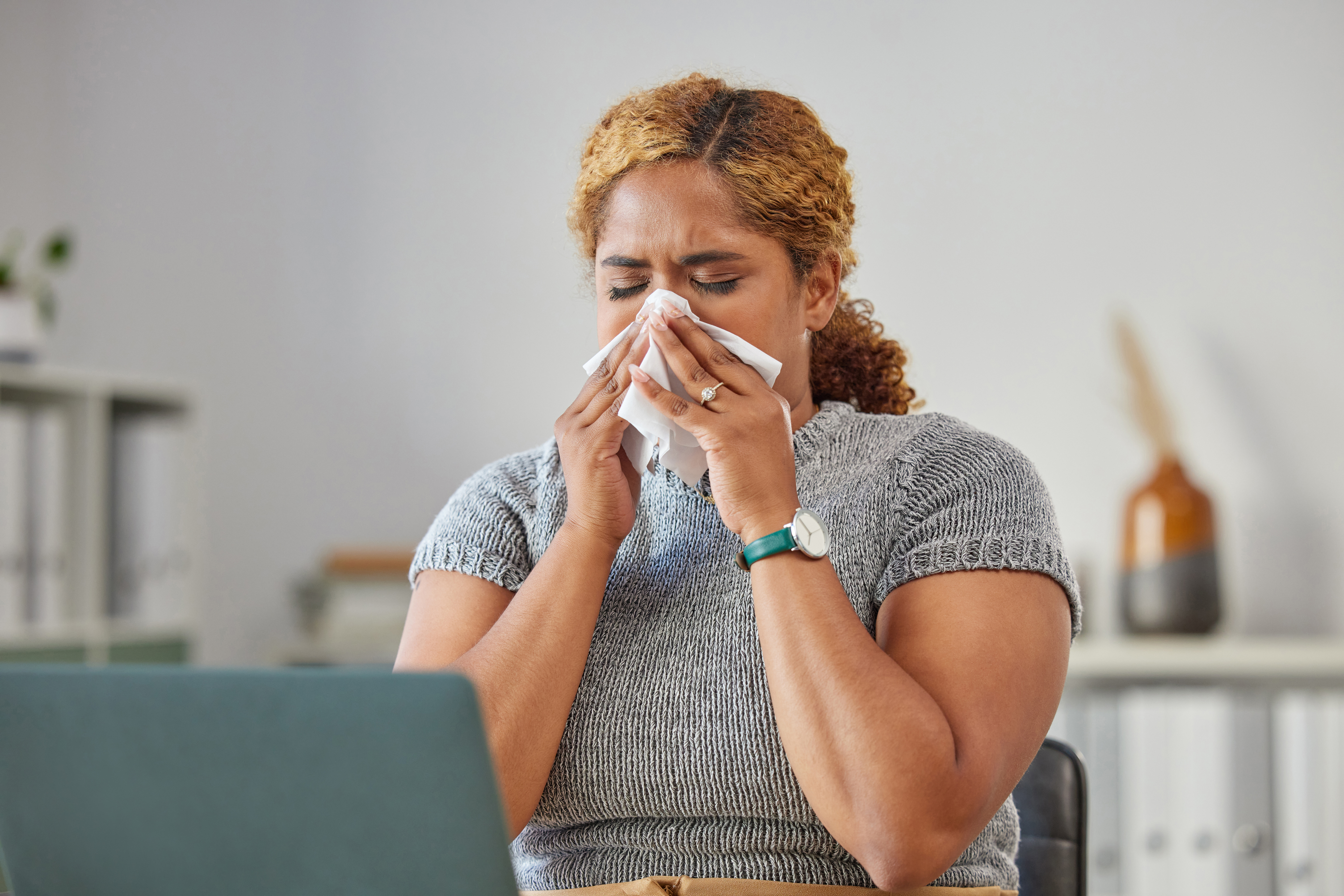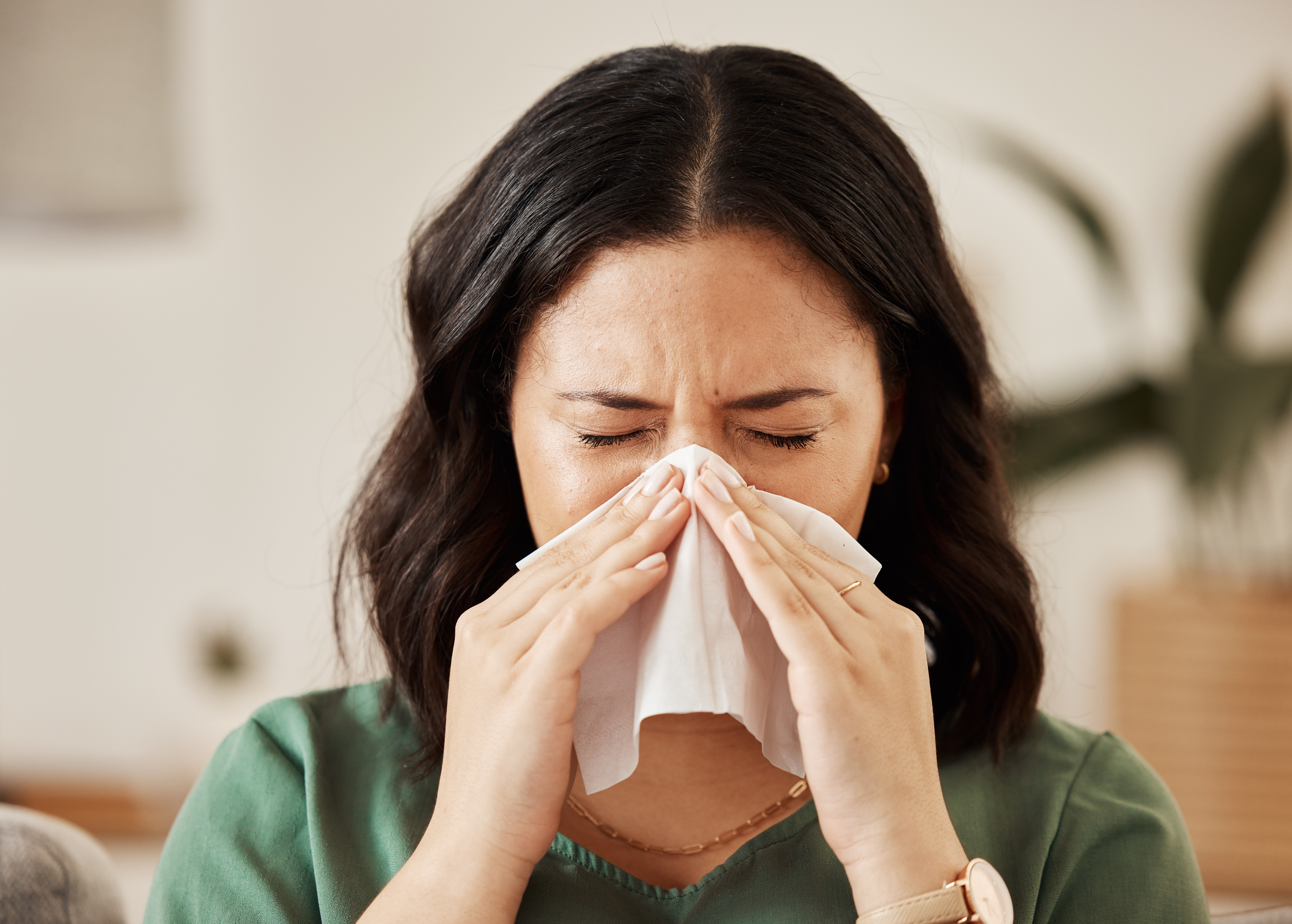15 Rare And Unlikely Causes Of Chronic Sinus Issues
Sinus infections are anything but pleasant. They come with a host of frustrating symptoms, including nasal congestion, sore throat, headaches, and a runny nose, which can disrupt daily life. Unfortunately, the treatment options most commonly prescribed by doctors—such as antibiotics and steroids—often come with their own drawbacks. There’s a growing consensus that these conventional treatments are frequently overprescribed, addressing symptoms temporarily rather than tackling the root cause of the problem. To achieve lasting relief, it’s crucial to identify the underlying causes of sinus infections and other chronic sinus issues. These root causes often dictate which treatments will be most effective. In this article, we’ve expanded our list to include 15 unlikely causes of chronic sinus conditions, shedding light on a variety of potential triggers. By understanding these causes, you’ll be better equipped to address sinus problems at their source and find a path to lasting improvement.
1. Bacterial Imbalance in the Microbiome

Up to eighty percent of an individual's immune system and the trillions of bacteria that make up the human microbiome are found in the digestive system. Essentially, the nose and mouth are a part of the digestive tract. Therefore, when the digestive system is not well, it leads to a loss of good bacteria to fight any harmful bacteria in the sinuses. It is necessary to have a decent balance of good bacteria throughout the body. Individuals who struggle with chronic sinus infections have been shown to have fewer bacteria in the microbes of their sinuses. A microbiome that lacks a variety of bacteria leads to chronic inflammation. If the mucous membrane is inflamed, it leads to the blockage of ducts and fluid in the sinuses, which leads to an infection. It is suggested that patients who suffer from chronic sinus infections request an examination of their microbiome to find out more details about their digestive system. Additionally, it is recommended that taking probiotic supplements such as lactobacillus assists in improving sinus symptoms.
2. Direct Bacterial Infections in the Sinuses

The most common cause of sinus issues in the population is the colonization of a virus in the nasopharynx and sinus cavities. However, chronic sinus problems can be caused by the colonization of bacteria in these regions as well. Many different types of bacteria live in the nasal passages and pharynx and do not usually cause any problems, similar to the flora that lives in the digestive tract. However, bacteria can accidentally become deposited in the sinus cavities through coughing, sneezing, or direct invasion due to conditions that are favorable to its growth. Inflammation of the sinus canals from environmental irritants, a weakened immune system, ciliary malfunction, and other mechanisms can provide bacteria with a favorable environment to colonize further. Types of bacteria known to cause sinus problems in some individuals include Hemophilus influenzae, Streptococcus pneumoniae, Streptococcus pyogenes, anaerobes, Moraxella catarrhalis, Pseudomonas aeruginosa, Klebsiella pneumoniae, Escherichia coli, Enterobacter species, Proteus mirabilis, and Staphylococcus aureus.
3. The Wrong Kind Of Biofilm

Another important aspect of the microbiome that should be strong and healthy is the biofilm. It is a thin and slimy film of bacteria that adheres to the gut and sinuses. It is important to note biofilms are not bad; they are just a way bacteria cultivate. It is the content within the biofilm itself that determines if it is probiotic or pathogenic (a bacterium that causes disease). The goal of functional medicine is to promote a healthy biofilm through diet, lifestyle changes, and holistic medicines. A few essential tools to repair biofilm are taking probiotics and prebiotics as they develop probiotic balance and taking digestive enzymes as they break down the biofilm.
4. Viral Infections

When the microbiome is in poor health, it leaves the immune system susceptible to not only bacterial infections but to viral infections. Surprisingly, about ninety-eight percent of all sinus infections are due to viral infections, not bacteria. Therefore, the antibiotics prescribed by doctors are completely counterproductive and will further diminish the health of the microbiome. The most noticeable way to identify whether it is a viral or bacterial infection is that bacterial infections usually last longer than ten days. The best way to combat viral infections is by upping the intake of vitamin C, zinc, or l-lysine.
5. Immune System Imbalance

Toxic biofilm, viruses, bacteria, and toxins can cause the immune system to become imbalanced, which in turn, can cause inflammation to occur in the body. There are a variety of ways to soothe and balance inflammation. Some of the most common are lowering the consumption of sugar, increase sleep cycles, stay active, practice meditation, increase B vitamins and stop the use of alcohol and drugs. However, it is important to remember balancing the immune system and soothing inflammation in the body is a constant effort and takes time. It is possible that by following all of these steps and staying motivated, chronic sinus infections can become a thing of the past.
6. Fungi

Another rare cause of chronic sinus problems is the colonization of a type of pathogen that is referred to as fungi. Fungal causes of sinus problems are most common in individuals who have a compromised immune system from conditions like lymphoma, leukemia, diabetes, immunodeficiencies, and the overuse of antibiotics. Saprophytic fungus develops when this type of fungi lives off of the mucus inside of the nose and causes obstruction of the sinuses. Fungus ball develops in an individual when fungus becomes lodged in the sinuses and forms particulate clumps that may contain bacteria and grow large enough to occlude the sinuses. Allergic fungal sinusitis develops when an individual experiences an abnormal allergic reaction to some type of fungus that comes in contact with the nasal mucus membranes and produces inflammation that clogs the sinus cavities. Invasive fungal sinusitis is a severe infection of the sinuses with the potential to destroy nasal and sinus tissue that develops in those who have a poorly functioning immune system.
7. Swimming

An individual can develop chronic issues with their sinuses if they partake in activities where their nasal passages come in contact with water frequently, like swimming. Swimming in natural bodies of water can allow for bacteria, fungi, and viruses to enter an individual's nasal passages and colonize. Swimming can also produce changes in pressure in an individual's sinus cavities that may promote the movement of the water into the nasal passages and sinus canals. Present in swimming pools, chlorine is a chemical that can also come in contact with an individual's nasal passages and sinus canals. Chlorine can cause the lining of an individual's sinus canals to become inflamed and swollen. This swelling does not allow the proper drainage of mucus from the individual's sinus cavities. In addition, the pathogen or irritant can cause the individual's immune system to produce abnormally thick mucus in the sinuses, making it more difficult to drain from the cavities. Sinus problems are not common in individuals who swim in bodies that contain saltwater, as it acts as a natural irrigation method for the nasal passageway that is similar to medical saline irrigation.
8. Smoking

An individual may develop chronic sinus problems if they are a heavy and regular smoker of tobacco products. Cilia are cells that line an individual's nasal passages with projections responsible for trapping foreign particles and sweeping them into mucus. Two chemicals that are present in cigarette smoke, ammonia and hydrogen cyanide, can impair the movement of the cilia in an individual's nasal passages. This impairment makes the individual more susceptible to problematic mucus buildup and clogged sinuses. The effect of cigarette smoke on the part of the immune system present in an individual's nasal passages and airways causes them to be at an increased risk of developing an infection in their sinuses because these defense mechanisms become impaired. Not only does regular smoking cause the immune system to be compromised, but it also causes chronic inflammation of the lining of the nasal passages and sinus canals. Cigarette smoke is also known to alter the natural flora present in an individual's nasal canals, which serves to protect them from foreign invaders.
9. Dental Infection

An individual can develop chronic sinus problems as a result of maxillary sinusitis of endodontic origin. An individual's back upper teeth have long roots that extend very close to their maxillary sinus cavities. An infection in the root of an individual's upper back tooth or endodontic infection can easily make its way through the soft tissues around it, invade the Schneiderian membrane and penetrate the maxillary sinus. Another way an individual can get sinus infections due to an infected tooth is if their dentist or oral surgeon accidentally perforates the maxillary sinus when they are in the process of extracting the infected tooth. In addition, some individuals who have undergone surgical procedures to place a dental implant in the upper back parts of their mouth have reported the development of sinus complications following their procedure. The tissues around a dental implant can become infected just like a natural tooth root, which has the potential to cause a sinus infection if the causative pathogen makes its way into the maxillary sinus cavities.
10. Allergic Rhinitis (Hay Fever)

Allergic rhinitis, commonly referred to as hay fever, is a significant contributor to chronic sinus issues. It occurs when the immune system overreacts to allergens such as pollen, dust mites, mold, and pet dander, causing inflammation and swelling in the nasal passages. This swelling can obstruct airflow, leading to blocked sinuses and secondary infections. Symptoms of allergic rhinitis often include sneezing, nasal congestion, runny nose, and itchy eyes. Over time, untreated allergies can create a cycle of chronic inflammation, making the sinuses more vulnerable to bacterial or viral infections. Effective treatment focuses on managing the underlying allergies. Antihistamines, nasal corticosteroid sprays, and decongestants can provide symptom relief, while immunotherapy (allergy shots) offers a long-term solution by gradually desensitizing the immune system to specific allergens. Additionally, taking measures such as using hypoallergenic bedding, maintaining a clean environment, and limiting exposure to known triggers can greatly reduce the severity of symptoms.
11. Air Pollution and Environmental Irritants

Air pollution and exposure to environmental irritants like smoke, chemical fumes, and strong odors can play a significant role in chronic sinus problems. Pollutants in the air can irritate the sensitive lining of the nasal passages, leading to inflammation and swelling that obstruct mucus flow. Over time, this can trap pathogens and debris, increasing the risk of sinus infections. Cigarette smoke, vehicle exhaust, industrial emissions, and even household cleaning products are common culprits. In addition to sinus issues, prolonged exposure to these irritants can also impair the cilia, tiny hair-like structures in the nasal passages responsible for clearing mucus and debris. Mitigating these effects requires minimizing exposure as much as possible. Using air purifiers at home, wearing masks in polluted environments, and ventilating indoor spaces can reduce irritant exposure. Maintaining proper nasal hygiene through saline rinses or humidifiers can also help clear irritants and keep sinuses healthy.
12. Deviated Nasal Septum

A deviated nasal septum is a structural condition in which the thin wall dividing the nasal passages is crooked or displaced. This can result from trauma, such as a broken nose, or can be present from birth. When the nasal passages are uneven, airflow is restricted, causing congestion and making it difficult for the sinuses to drain properly. Blocked sinuses provide an ideal environment for bacteria and other pathogens to thrive, increasing the likelihood of chronic sinus infections. Symptoms often include difficulty breathing through one side of the nose, frequent nasal congestion, and recurrent sinus infections. While minor cases may be managed with medications like nasal sprays or decongestants, severe deviations often require surgical correction through a procedure called septoplasty. Septoplasty straightens the septum, improving airflow and significantly reducing sinus problems. Consulting an ear, nose, and throat (ENT) specialist can help determine the severity of the deviation and the appropriate course of treatment.
13. Hormonal Changes

Hormonal fluctuations can have a surprising impact on sinus health. During pregnancy, menopause, or as a result of certain medical conditions like hypothyroidism or polycystic ovary syndrome (PCOS), hormone levels can influence the production of mucus and the swelling of nasal tissues. Increased levels of estrogen, for example, can lead to greater mucus production and swelling, resulting in nasal congestion and blocked sinuses. This hormonal nasal congestion, also known as pregnancy rhinitis, can affect breathing and make the sinuses more prone to infection. To manage sinus issues caused by hormonal changes, it’s important to address the underlying hormonal imbalance. Doctors may recommend lifestyle changes such as a balanced diet, regular exercise, and stress management techniques. In some cases, hormonal therapies or medications may be necessary. Staying hydrated, using a humidifier, and practicing nasal rinses can also help alleviate symptoms and keep the sinuses clear during these hormonal shifts.
14. Chronic Stress

Chronic stress is a lesser-known but significant factor that can contribute to sinus problems. Stress affects the immune system, reducing its ability to fight off infections and increasing the risk of inflammation throughout the body, including the sinuses. When the immune system is weakened, it becomes more difficult to clear pathogens and maintain healthy mucus flow, leading to an increased likelihood of chronic sinus infections. Stress can also lead to behaviors that exacerbate sinus issues, such as poor sleep, unhealthy eating habits, and dehydration. Addressing stress requires a multifaceted approach. Incorporating relaxation techniques like yoga, mindfulness meditation, and deep breathing exercises can help reduce stress levels and improve overall immune function. Regular physical activity, adequate sleep, and maintaining a balanced diet rich in nutrients also play a crucial role in combating the negative effects of stress. Managing stress effectively not only benefits overall health but can significantly reduce the frequency and severity of sinus problems.
15. Medication Side Effects

Certain medications, particularly antihistamines, decongestants, and blood pressure drugs, can contribute to chronic sinus issues. While antihistamines and decongestants are commonly used to manage allergies or colds, overuse can dry out the nasal passages and reduce mucus flow, leading to sinus blockages. Similarly, beta-blockers and ACE inhibitors, often prescribed for hypertension, can trigger nasal congestion as a side effect. This congestion creates an environment that fosters sinus infections. Patients experiencing chronic sinus issues should consult their doctor to evaluate whether their medications might be a contributing factor. Adjusting doses, switching medications, or incorporating saline rinses and hydration can help mitigate these effects.
Addressing Chronic Sinus Triggers

Chronic sinus conditions can be caused by a wide range of underlying factors, many of which are often overlooked. From bacterial imbalances and structural issues to environmental irritants and medication side effects, identifying the root cause is essential for effective treatment. By understanding these diverse triggers and consulting with healthcare professionals, patients can develop tailored strategies to manage and reduce sinus symptoms. While conventional treatments like antibiotics, steroids and decongestants may provide temporary relief, addressing the underlying cause offers a more sustainable solution. Whether through lifestyle changes, environmental adjustments, or medical interventions, improving sinus health is achievable with the right approach. By exploring the 15 potential causes outlined, you’ll be better equipped to take control of your sinus health and achieve lasting relief.